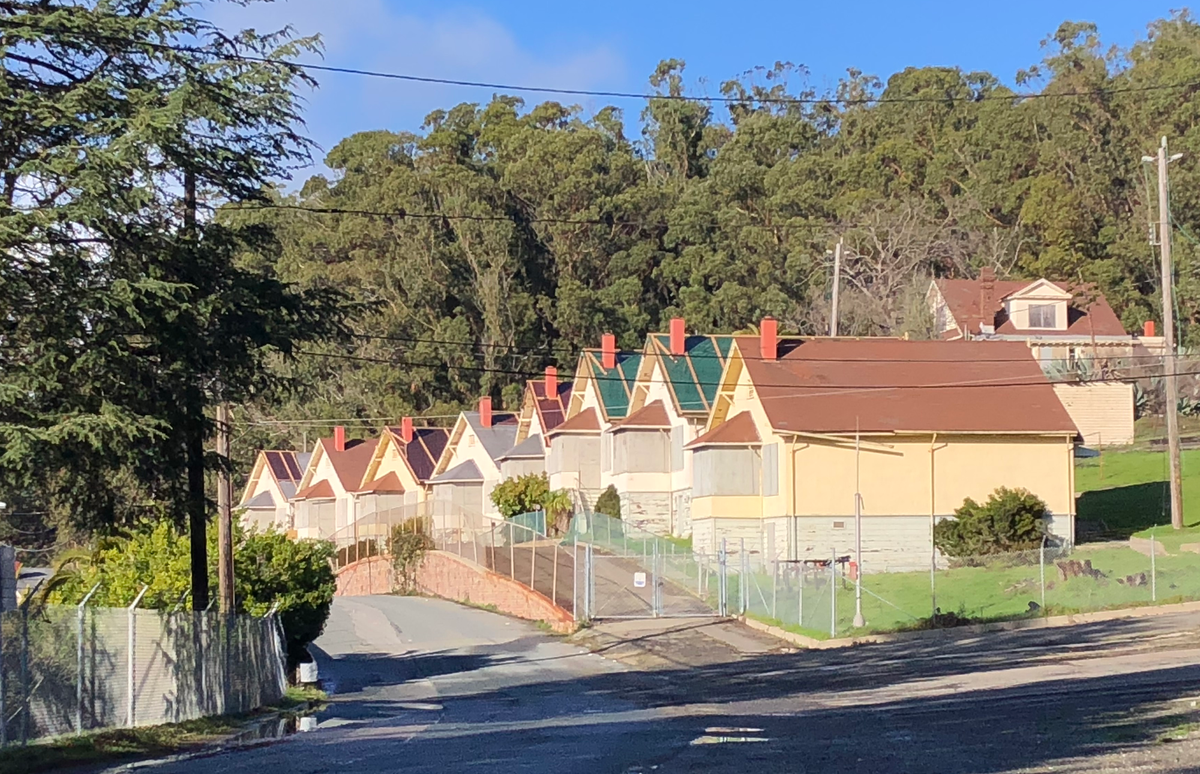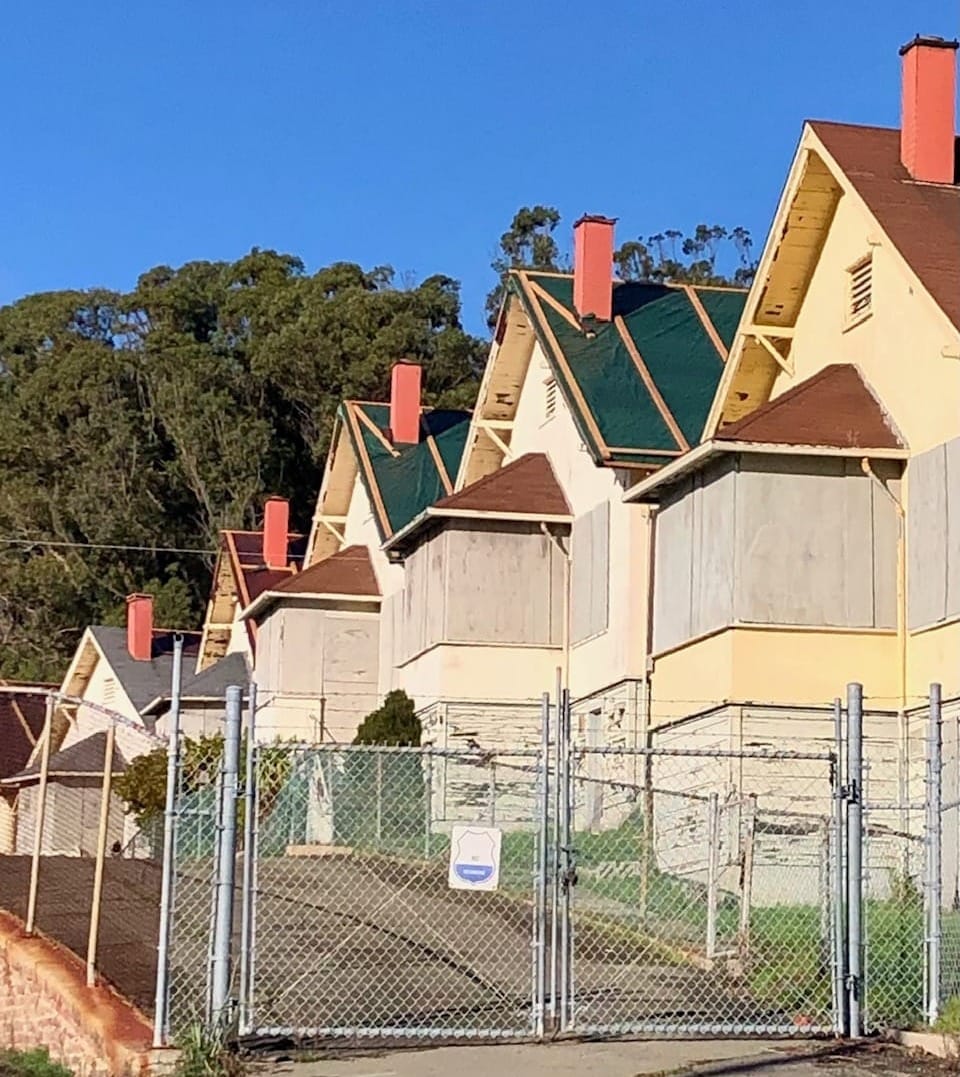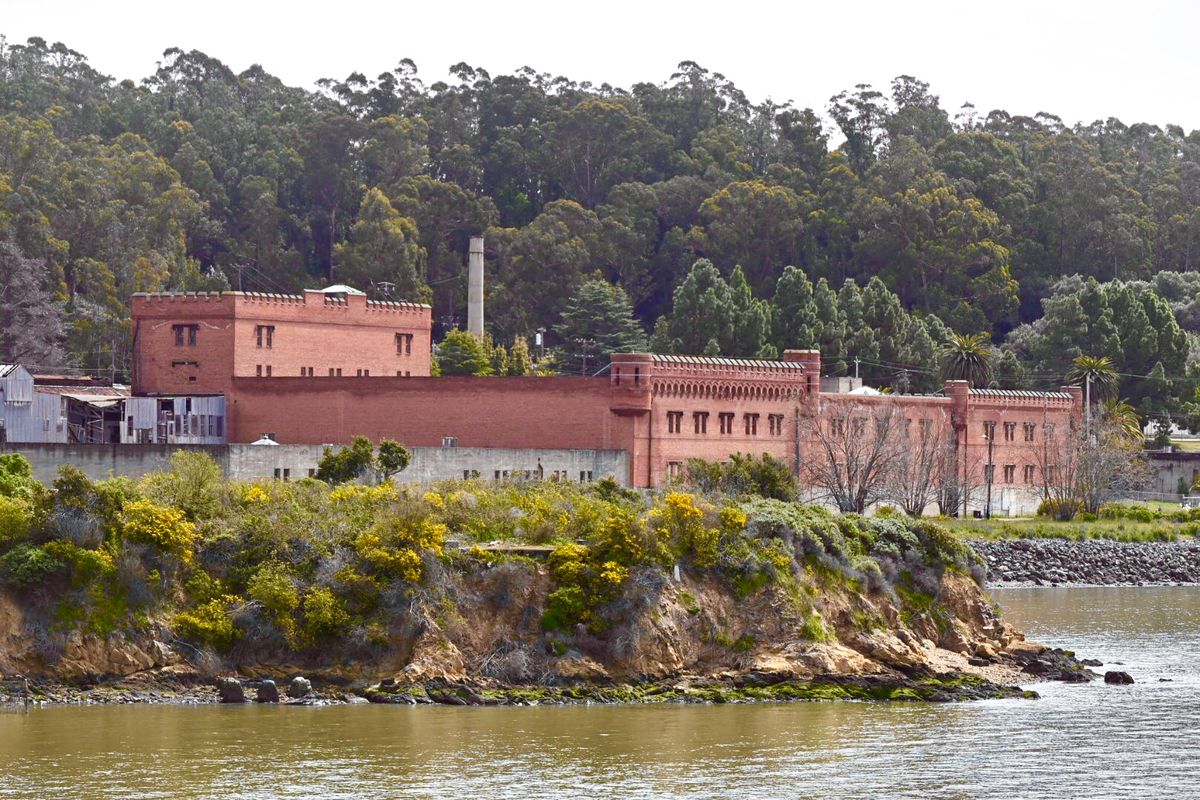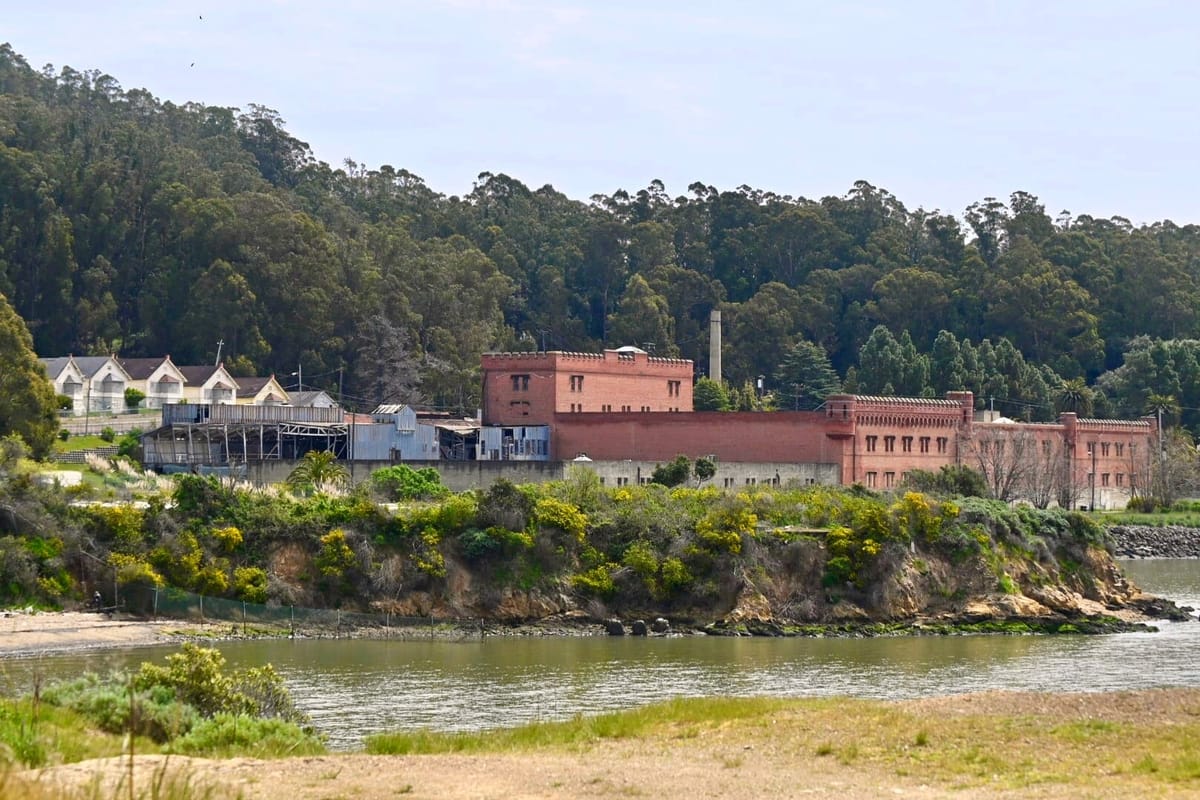Richmond's historic Winehaven: What now?

Recently, the East Bay Regional Park District signed a letter of intent to acquire the 80-acre Point Molate property in Richmond, leaving residents with many questions, including what will become of Winehaven, Richmond’s historic winery.
EBRPD said the acquisition will ensure that the historic land will be preserved as open space, providing recreation and public access for all.
“We are one step closer to bringing Point Molate into the Park District’s impressive portfolio,” said Park District General Manager Sabrina Landreth. “People love this place, and we are proud to be part of securing it as a public open space for the community for decades to come.”
EBRPD will pay $40 million to the Guidiville Rancheria to acquire the property “as-is.”

What about Winehaven?
Nestled at the end of a protruding piece of land on the shores of San Pablo Bay, Winehaven, known for its castle-style architecture and as a favorite sketching spot for local artists, was once known as the world’s largest winery. With its 400 resident workers dispatching all of the California Wine Association’s shipments from the dock of the old building, the winery pumped out an astonishing 500,000 gallons a month until prohibition ended its reign in 1919.
Point Molate, along with Winehaven, was purchased by the Navy in 1941, and its neat little row of Victorian-style worker cottages was retooled for the use of naval personnel. It was decommissioned in 1995 and sold to the city of Richmond for the tidy sum of $1 with the stipulation the property be used to enhance the economic base and long-term economic viability of the city
Point Molate was entered into the National Register of Historic Places on October 2, 1978.

Numerous proposals for using the property failed to come to fruition over the years, so both Point Molate and Winehaven sat unused and unmaintained as various groups argued over their fate.
When the city of Richmond announced earlier this month a plan to sell the historic property, no mention was made of Winehaven. Litigation is still pending not only with the Winehaven Trust but also with SunCal Developers subsidiary Winehaven Legacy, LLC, who proposed mixed-use development at Point Molate.
In April 2023, a nonprofit formed by former Richmond mayors Tom Butt and Rosemary Corbin filed a lawsuit to save the historic Winehaven structures at Point Molate, which had begun to rapidly deteriorate.

Butt said the lawsuit will go on, and the park district will be added as a defendant as soon as the title transfers.
“Under the proposed sales agreement, the city has responsibility for security and maintenance for a year after closing. Under City codes, the EBRPD will still have an obligation to maintain it,” Butt said.
According to Butt, the preservation, stewardship, and interpretation of cultural resources from all eras of the east bay’s past is part of the park district’s mission.
“One of the first things the EBRPD must do is prepare a master development plan with a CEQA review, which will have to evaluate treatment of the historic resources, including Winehaven,” Butt said.
The Winehaven Trust demanded the replacement of roofs and gutters, stabilization of brick turrets, and repair of exterior elements to prevent water intrusion into buildings.
Trust members said failing to maintain the structures and allowing the buildings to deteriorate constitutes demolition by neglect, allowing historic buildings to deteriorate as a means of skirting historic preservation laws.
Last year, Corbin said she is a passionate environmentalist, but preserving the environment doesn’t mean knocking down the buildings that tell a valuable story and contribute to the rich fabric of your city.
Historic preservation is an economic development tool, according to Corbin.
“Thank goodness Richmond has preserved the remnants of the location of Santa Fe Railroad & Standard Oil in the first part of the 20th century,” Corbin said. “The biggest 1920s stories, Winehaven and the Richmond Country Club haven’t been saved yet.”
Loose end
District 5 Councilmember Gayle Mclaughlin said the city still has one loose end related to the SunCal project—the ongoing litigation of the parcels now being sold to EBRPD.
"This project ends years of litigation for the city. We do still have one loose end, which is litigation on the SunCal project (unrelated to this sale and park project) Mclaughlin said.“That litigation is looking good for the City because the SunCal project failed for financial reasons and the impact it would have had on the general fund."
SunCal sued the City of Richmond for breach of contract and Brown Act violation and sought to recover the costs incurred in the project, which exceeded $20 million.
Following the Court of Appeal’s California Environmental Quality Act decision in November 2023, attorneys representing the city submitted a motion to dismiss SunCal’s lawsuit. The hearing is scheduled for October 5 at the Superior Court of California.

SunCal claimed they met their obligations but that the city acted in bad faith to derail the project and violated the Brown Act by denying a community facilities district to finance infrastructure for the project without notice.
SunCal is seeking compensation for lost profits, incurred costs, and benefits conferred. They also seek a constructive trust in the city’s property interest, statutory damages, and attorney’s fees.
SunCal said one method is to estimate total profit over the project’s life by subtracting costs of $373 million from revenue of $680 million. Principal revenue comes from multiplying parcels by their average anticipated sale prices. Winehaven assumed it would develop 1,152 parcels. SunCal projected the profits over the project’s life were $306 million.
The market value of the project at the time of the breach was estimated to be $136 million based on the projected profits over the life of the project.
“Given the estimated $64,438,766 in costs incurred or to be incurred by approximately the time of the breach, the direct profits lost based on the City’s breach are approximately $71,561,234,” Robert P. Feldman, attorney for SunCal, wrote.
SunCal also claims it has suffered $15 million in damages and losses consisting of payments made or to be paid by SunCal.
SunCal recently filed a motion on July 16 to compel the production of withheld documents and communications relating to the analyses conducted by third-party consultants that provided financial analysis of the project on the city’s general fund. These consultants include BAE Urban Economics, NHA Advisors, Integra Realty Resources, and Willdan Financial Services.
According to filings by SunCal, the city is withholding 2,675 documents and 1,703 documents from third-party consultants who claim attorney-client privilege.
Kristen Bird, Attorney for SunCal, said in legal papers that the city is withholding thousands of communications between city employees, city council members, and third-party consultants on the grounds of the attorney-client privilege.
“The documents listed on the Amended Logs include critical materials relating to the Council’s resolution not to establish the CFD and materials prepared by BAE, NHA, Integra, and Willdan related to their analyses of the CFD’s fiscal impact on the City’s General Fund. Both sets of privilege logs fail to provide sufficient information to support the city’s privilege assertions and to enable Winehaven to meaningfully evaluate those assertions,” Bird wrote.
The next hearing is scheduled for October 5 at the Contra Costa County Superior Court.
Click to become a Grandview Supporter here, or make a one-time donation here. Grandview is an independent, journalist-run publication exclusively covering Richmond, CA. Every cent we make funds reporting from Richmond's neighborhoods. Copyright © 2024 Grandview Independent, all rights reserved.






